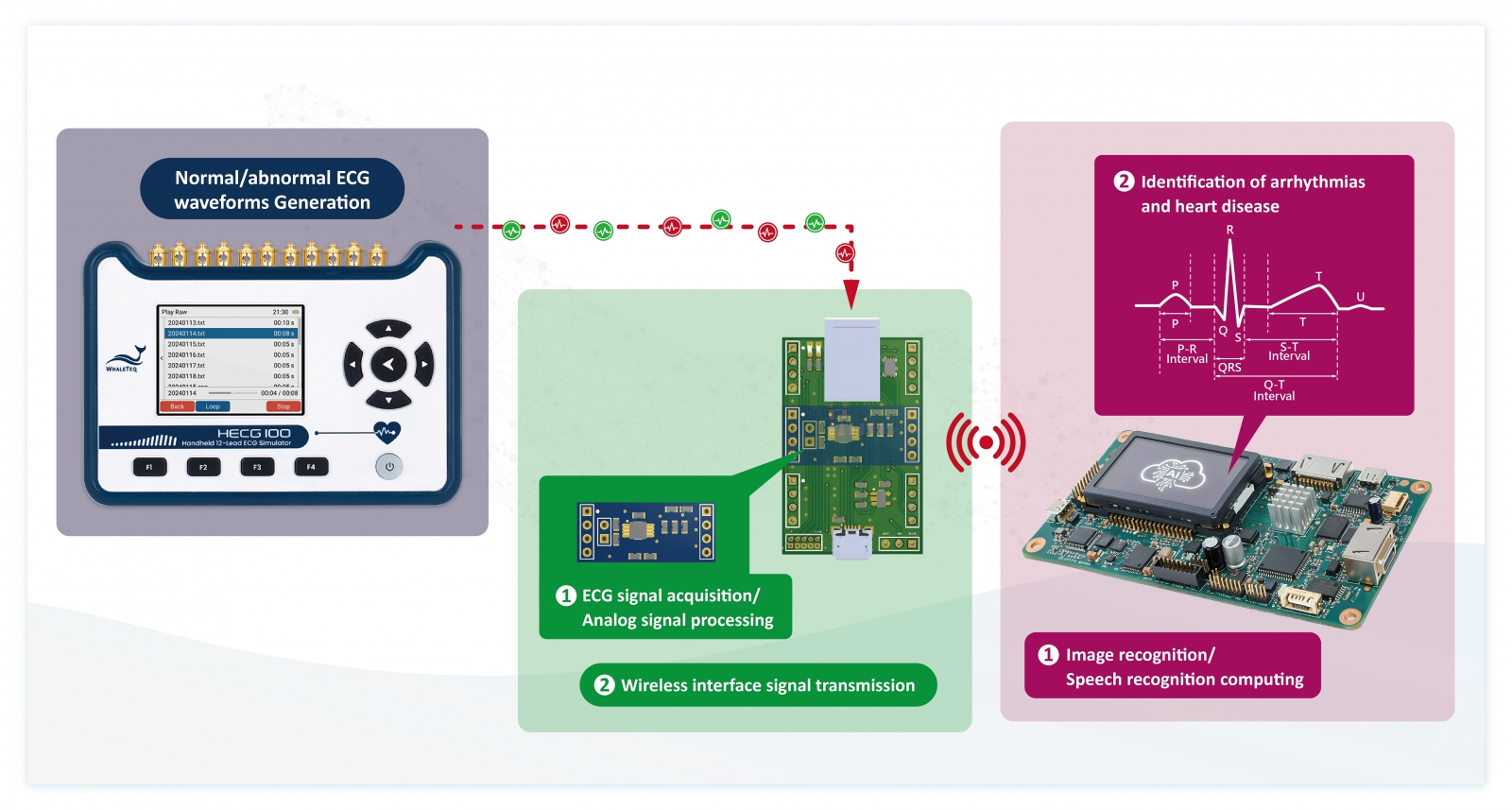With the rapid development of smart healthcare and biomedical chip industries, the demand for cross-domain talents is increasing. The "Biomedical-domain chip system application with AI computing" course at National Cheng Kung University's Miin Wu School of Computing is designed to respond to this trend.
The course aims to cultivate students' integration capabilities in the fields of biomedical chip systems and AI computing, combining theoretical learning, technical practice and innovative topics to enable students to develop comprehensively from basic knowledge to practical applications. It covers topics such as medical knowledge, signal acquisition principles, edge computing and disease analysis. In addition to professional lectures, 9 guest lectures from industry experts are arranged, giving students the opportunity to directly connect with the industry and understand the latest technology and industry trends.
In the technical practice part, students actually operate vital sign simulators (WhaleTeq), wearable biomedical signal development platforms (Yutech) and edge computing platforms (Analog Devices) to strengthen software and hardware integration and problem-solving capabilities.
The course introduced 9 units of HECG100 Handheld 12-Lead ECG Simulator from WhaleTeq to simulate ECG signals (including symptoms like arrhythmia) and train AI models to detect heart abnormalities. By playing real data from PhysioNet or professors' own data, combined with handmade sensors and development boards, the AI model training is done from signal generation, acquisition, and analysis. For the first time , students discovered that clinical-grade ECG data can be so intuitively "replayed" and "disassembled" - every waveform and every abnormal rhythm can become training material for AI interpretation.
Figure: National Cheng Kung University’s “Biomedical-domain chip system application with AI computing” course invites industry experts for students to actually operate vital sign simulators, wearable biomedical signal development and edge computing platforms to grasp the industry trends.
At the end of the course, everyone worked in groups to design topics related to ECG waveform interpretation , and some teams directly submitted their results to participate in off-campus competitions. This "hands-on" experience made the theory no longer abstract, and also gave students real imagination and confidence in the future medical AI industry.
The professor said: "ECG AI diagnosis is one of the hottest topics in the industry. Students can learn everything from basics to applications, from test equipment to AI, which will make them more competitive after graduation." Students gave feedback: "In the past, we only memorized theories, but now we can really work on our own AI projects and verify the results."
HECG100 is not just a laboratory tool, but also a spark that ignites medical innovation. When cross-domain learning meets hands-on practice, the future of medical AI shines in the hands of these young engineers. WhaleTeq will continue to cooperate with educational institutions to promote the implementation of medical AI and pave the way for the next generation of medical talents.
Related information
🔸Course introduction: Biomedical-domain chip system application with AI computing
🔸Product introduction: HECG100 Handheld 12-lead ECG Simulator, TriAnswer, MAX78000 edge computing platform
🔸Learn more: Contact Us | WhaleTeq
